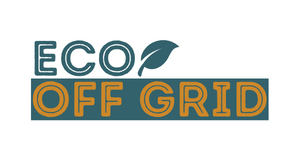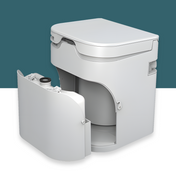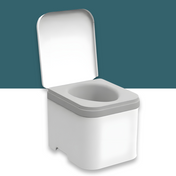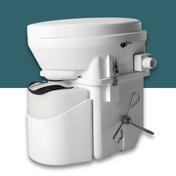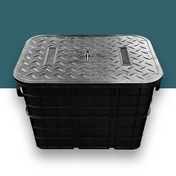Imagine waking up to the call of kookaburras and crisp morning air—no alarms, no city noises, just pure Aussie wilderness.
Across Australia, more people are swapping the daily grind for a simpler, self-sufficient, off-grid lifestyle. Whether it’s a cozy bush cabin, a tiny home in the hills, or a rugged campsite, the right setup makes all the difference.
Off-grid living isn’t just for survivalists anymore. With the right gear, you can create a system that runs smoothly, sustainably, and comfortably–wherever you are.
Cabin vs Campsite: What’s Your Off-Grid Lifestyle?
Off-grid living looks different for everyone. Some seek a long-term retreat, while others prefer a mobile adventure.
Knowing what kind of setup you’ve got or want to build makes it a whole lot easier to pick the right gear from the start. Most off-gridders fall into one of two styles:
The Cabin Crowd
Maybe you’ve built a tiny home, turned a shed into something special, or gone all-in with a fully off-grid cabin. You’re looking for long-term comfort and want your power, water, and waste systems to run reliably day in, day out. And when you're not using it, you might even be thinking about listing it on Airbnb.
The Campsite Crew
Your setup is more flexible. It could be a basic bush camp on your block, a 4WD rig that’s always packed and ready, or a no-fuss setup under the stars. You’re not living there full-time, but when you get away, you still want things to be clean, comfortable, and easy to manage.

5 Off-Grid Essentials for a Comfortable & Sustainable Setup
No matter how you live off-grid, a few smart essentials can make life easier, cleaner, and way more comfortable. These five essentials can take your off-grid setup from "roughing it" to "nailed it."
1. Composting Toilets – A Clean, Waterless Solution

Say goodbye to digging holes or relying on septic tanks. A composting toilet is a water-saving, eco-friendly solution that eliminates odours and turns waste into compost. Perfect for cabins and campsites alike, it’s a game-changer for off-grid living. 👉 Shop Composting Toilets
2. Portable Power Stations – Reliable Energy Anywhere

Forget noisy, fuel-hungry generators. Modern portable power stations run your lights, fridge, tools, and devices without the fumes or noise. Charge them with solar or mains, and take electricity wherever you go.
Not sure how to set up off-grid power? Contact us and we’ll show you the gear that works and how to make it reliable, no matter the weather. 👉 Explore Portable Power
3. Generators – Your Backup Plan When Solar Falls Short

We love solar, but cloudy weeks happen. A reliable generator will give you peace of mind when your batteries run low or your power needs spike.
Today’s models are quieter, more efficient, and easy to run—perfect for topping up your batteries or keeping the essentials going when the sun is not cooperating. 👉 Browse Generators
4. Water Filtration – Safe Drinking Water, Every Time

If you’re relying on rainwater tanks, creeks or bores, a solid filtration system is a must. It helps remove bacteria, sediment, and contaminants for safe drinking water, wherever you are.
From brushing your teeth to filling the kettle, filtration makes off-grid water systems safer and more reliable. 👉 See Filtration Options
5. Water Tanks – Store & Secure Your Supply

Water is life, and off-grid living means storing your own supply. A tough, weather-resistant water tank keeps you covered for drinking, cooking, and washing. Pair it with a gutter system and filter for a reliable, self-sufficient water source. 👉 Check Out Our Tanks
How to Build a Reliable Off-Grid System
If You’re Building a Cabin
A cabin gives you the space and stability to build something that lasts. You’ve got a roof, a base to work from, and the ability to install more permanent systems that make off-grid living feel like home.
Here’s a solid setup to get you started:
1. Install a Composting Toilet
No plumbing required. A composting toilet is a low-maintenance, water-saving solution that works perfectly in off-grid homes. You can install it inside like a normal toilet, and with proper setup, there’s no odour or mess—just compost ready for the garden (after it’s fully broken down, of course).
2. Use a Generator + Solar Panels for Reliable Power
Cabins are perfect for solar setups, with roof space for panels and room to install a battery system. But let’s be real—solar alone doesn’t always cut it, especially during cloudy days. That’s where a backup generator comes in. It kicks in when needed, keeping your fridge running and devices charged without missing a beat.
3. Add a Full-Size Rainwater Tank + Under-Sink Filtration
A proper rainwater tank will keep your cabin supplied year-round, especially in areas with unpredictable rainfall. Pair it with an under-sink filtration system to remove bacteria, sediment and other nasties, giving you clean, drinkable water straight from the tap.
If You’re Running a Campsite
If your setup is more mobile or minimalist, like a bush camp, 4WD base camp, or pop-up weekend getaway, you’ll want gear that’s flexible, compact, and easy to set up or move.
1. Use a Portable Power Station
Quiet, solar-rechargeable, and easy to carry, portable power stations are ideal for short stays or off-grid camping. Use them for lighting, phones, fridges, and more, without the noise or fuel use of a generator.
2. Set Up a Compact Composting Loo
A clean, eco-friendly loo doesn’t need to be complicated. A compact composting toilet is easy to set up, doesn’t require plumbing, and keeps your site clean and low-impact—no digging, no smell, no worries.
3. Include a Small Rainwater Tank + Compact Filter
Even weekend camps need water. A small tank or jerry setup with a portable filter gives you clean water for drinking, cooking, and washing, without relying on bottled supplies or nearby streams.
Not Sure Where to Start?

Off-grid setups aren’t one-size-fits-all. What works on a remote bush block won’t always suit a weekend campsite. If you’re not sure what gear makes sense for your space or goals, we’re here to help.
Call 1300 676 523 or send a message to sales@ecooffgrid.com.au for guidance and recommendations tailored to your needs.
Final Thoughts: Time to Build Your Off-Grid Haven
Off-grid living isn’t about going without—it’s about doing things smarter, simpler and more sustainably. With the right setup, you can enjoy the freedom and beauty of the Aussie landscape without sacrificing cost.
At Eco Off Grid, we’ve helped thousands of Aussies create reliable, self-sufficient systems–from basic bush camps to fully off-grid homes.
If you’re ready to start (or upgrade) your setup, we’re here to help you build it right.
